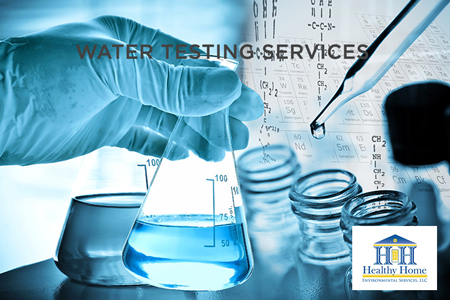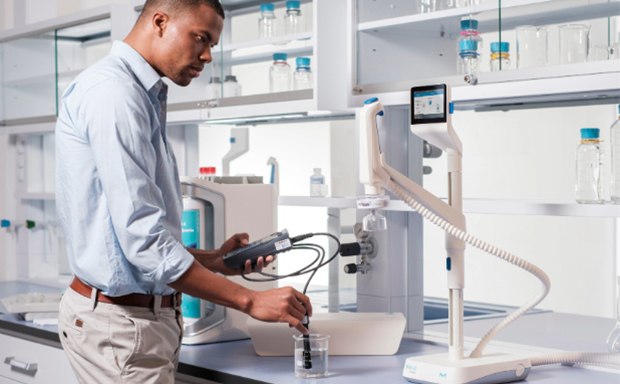The Significance of Picking Water Testing Services Tampa for Your Health
Wiki Article
Learn Exactly How Water Testing Can Find Pollutants and Safeguard Your Family members's Health
Comprehending the relevance of water testing is essential for securing your family's health and wellness, as our water supply can harbor hidden risks. By checking out the mechanics of water testing, one can discover the invisible threats lurking in seemingly beautiful water sources.Value of Water Checking
Acknowledging the vital role water plays in sustaining life, the importance of water testing can not be overstated. Water is a fundamental source, essential for alcohol consumption, cooking, cleanliness, and various commercial processes. Its top quality directly influences public wellness and wellness. Consequently, ensuring that water is devoid of hazardous compounds is important for keeping healthy communities and ecosystems.Water screening functions as an aggressive step to recognize potential risks that may compromise water quality. Through methodical analysis, it assists spot physical, chemical, and biological criteria that can present threats to human health. Routine screening allows for the early detection of issues, helping with prompt treatments to stop extensive contamination and connected health issue.
In addition, water screening sustains regulative compliance, guaranteeing that water service providers satisfy established safety criteria and guidelines set by governmental authorities. It promotes transparency and accountability, developing public count on the water supply system. Moreover, screening offers valuable data that educates water administration methods, enabling sustainable use and preservation of this precious resource.
Fundamentally, water screening is an essential tool that safeguards public wellness, makes certain regulatory adherence, and advertises the sustainable management of water sources. Its significance in shielding both areas and people can not be undervalued.
Common Water Impurities
Among the various components that can compromise water quality, common water impurities include a variety of physical, chemical, and biological substances that present substantial risks to human health and wellness and the setting. Physical contaminants often include sediments or organic products put on hold in water, which can affect clarity and taste. Chemical contaminants incorporate a broad array important, consisting of pesticides, herbicides, steels like lead and mercury, and commercial chemicals. These chemicals can infiltrate water supplies with agricultural drainage, commercial discharges, or seeping from pipes and storage tanks.Biological pollutants, largely microorganisms, viruses, and protozoa, arise from human and animal waste going into water supply. Pathogens such as E. coli, Giardia, and Cryptosporidium are well-known for creating intestinal health problems and can be specifically dangerous to young kids, the elderly, and those with compromised body immune systems. Nitrites and nitrates, commonly stemming from fertilizers, position one more health and wellness danger, specifically to infants, potentially causing problems like methemoglobinemia or "blue infant disorder."
In addition, arising impurities, including drugs and personal care items, have actually elevated worries because of their perseverance and unknown long-term effects. Understanding these pollutants is vital for implementing efficient water therapy strategies and ensuring risk-free alcohol consumption water.
Exactly How Water Screening Works
Recognizing the range of impurities in water underscores the significance of efficient testing techniques to guard public health. Water testing is an organized procedure designed to identify and measure numerous impurities that might posture threats to human health.As soon as samples are collected, they undertake lab evaluation using different methods. Chemical testing commonly entails spectrometry or chromatography, both of which can recognize and determine certain chemical substances. For microbiological testing, methods such as membrane filtration or enzyme substrate tests are used to discover pathogenic bacteria. Additionally, physical qualities like color, turbidity, and ph are evaluated to give understanding into the total quality of the water.
The specific techniques utilized in water screening depend upon the particular contaminants of problem and the water's planned usage. By regularly applying these extensive testing procedures, scientists and public health and wellness officials can make certain the safety and high quality of water, consequently shielding communities from potential health and wellness hazards.
Selecting the Right Test
The initial action is evaluating the water resource-- be it municipal, well, or surface area water-- as each has distinct dangers. Metropolitan water may need testing for disinfectant by-products, while well water might need testing for nitrates, bacteria, and heavy steels.Following, consider current occasions and ecological elements. Close-by agricultural activities might demand screening for herbicides and chemicals, whereas industrial zones can call for look for chemical contaminants. Additionally, any changes in water smell, appearance, or taste need to prompt details screening for typical contaminants like lead, chlorine, or organic virus.
Expert water testing solutions use detailed sets that target a variety of possible pollutants. These sets usually line up with standards set by the Epa (EPA) or local wellness divisions. For a more customized technique, speaking with a water top quality professional can offer insights right into which particular examinations are needed based on local worries and individual health demands, making sure the protection of your home's wellness.

Keeping Water Safety

In Water Tesing Services Tampa addition to testing, proper upkeep of water supply plays an essential duty. This consists of evaluating and servicing pipes systems, tank, and septic tanks to stop leakages or backflow that might introduce pollutants - Water Tesing Services Tampa. Employing water filtering systems made to attend to specific regional issues can additionally protect against contaminations, providing an additional layer of defense
Public recognition and education are similarly vital in keeping water security. Communities must be notified concerning possible threats related to neighborhood water resources and the essential actions to alleviate them. Motivating public engagement in water safety and security campaigns promotes a cumulative responsibility that boosts overall efficiency.
Eventually, a comprehensive strategy that integrates regular screening, system maintenance, and area participation is important in protecting water quality. By doing so, families can be ensured of clean and risk-free water, protecting their wellness and wellness.

Final Thought
Normal water testing is important for identifying contaminants such as microorganisms, heavy steels, and chemicals that posture wellness threats. By evaluating water examples, undetected threats can be found, making sure the arrangement of risk-free drinking water.Comprehending the significance of water testing is vital for safeguarding your family's health, as our water supply can nurture hidden risks.Water testing offers as a positive step to identify possible dangers that may compromise water quality.Moreover, water screening sustains regulative compliance, guaranteeing that water companies meet recognized security standards and guidelines set by governmental authorities. Metropolitan water may require screening for disinfectant by-products, while well water may require screening for nitrates, microorganisms, and hefty metals.
Normal water testing is a critical part in maintaining the top quality of water sources, enabling prompt treatments before contaminants get to harmful levels.
Report this wiki page